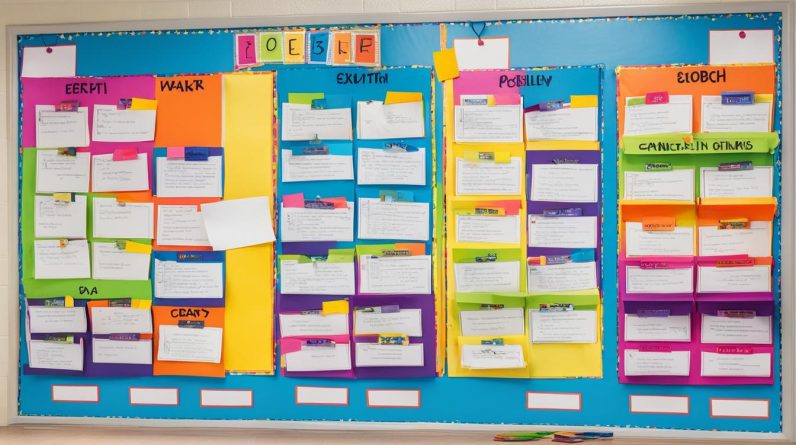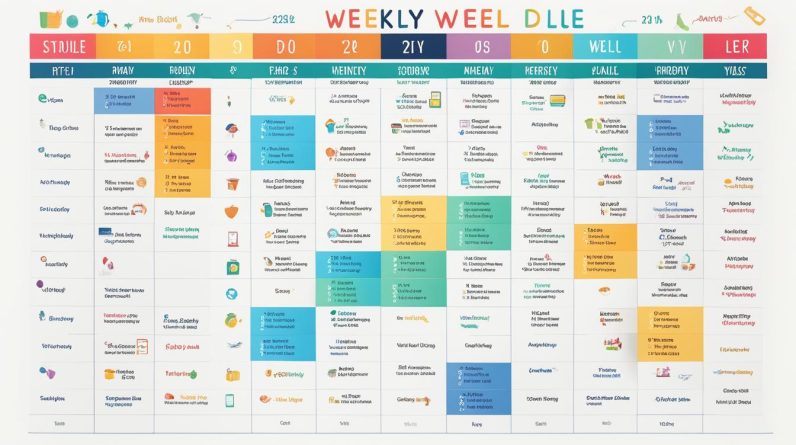Whether you are new to the state or just getting started, here’s what you need to know about how to homeschool in South Carolina. South Carolina offers three options for homeschoolers to comply with the state laws: Option 1, Option 2, and Option 3. Most homeschoolers choose an accountability association under Option 2 or Option 3. It’s important to register with an accountability option and keep the necessary documents in order. Additionally, finding curriculum that suits your child’s needs, keeping your own records, and joining support groups and local meet-ups are essential for a successful homeschooling journey in South Carolina.
Key Takeaways:
- South Carolina offers three options for homeschoolers: Option 1, Option 2, and Option 3.
- Registering with an accountability association is important to comply with state laws.
- Choosing curriculum that suits your child’s needs is crucial.
- Keeping accurate records and documentation is required.
- Joining support groups and local meet-ups provides socialization and support.
Homeschooling Laws in South Carolina
In South Carolina, homeschooling is governed by specific laws and regulations. Understanding these laws is crucial for parents who choose to educate their children at home. By complying with the homeschool laws in South Carolina, you can ensure a smooth and legal homeschooling experience.
To homeschool in South Carolina, parents are required to handle the majority of instruction and teach for at least 180 school days. The curriculum must include subjects such as math, reading, writing, science, social studies, and composition and literature for grades 9-12.
It’s important to note that parents must have at least a high school diploma or GED to homeschool in South Carolina, ensuring they meet the educational qualifications for teaching their children.
When it comes to legal options for homeschooling in South Carolina, families have three choices:
- Homeschooling through the school district
- Homeschooling through the South Carolina Association of Independent Home Schools (SCAIHS)
- Homeschooling through a South Carolina Accountability Association
Each option has its own requirements and benefits, so it’s essential to research and choose the option that best suits your family’s needs.
Understanding the homeschool laws in South Carolina and choosing the appropriate legal option will ensure that your homeschooling journey is compliant with the state regulations. This will provide you with the peace of mind to focus on your child’s education and create a successful homeschooling experience.
South Carolina Homeschool Association
The South Carolina Homeschool Association is a valuable resource for homeschooling families in the state. It provides support and guidance in navigating the homeschool laws, choosing the right curriculum, and connecting with other homeschooling families.
“The South Carolina Homeschool Association offers a wealth of information and resources to assist homeschooling parents in South Carolina. From legal guidance to curriculum suggestions, their expertise can help families create a successful homeschooling journey.”
Registering with an Accountability Option
When homeschooling in South Carolina, it’s important to choose an accountability association that offers the services you need. By joining an accountability option, you can ensure compliance with homeschooling regulations and receive support throughout your journey.
If you have never been enrolled in a South Carolina public school, you do not need to notify the local school. However, it’s essential to get the necessary documents in order to demonstrate your compliance with state requirements.
“Joining an accountability association not only helps you stay on track with homeschooling regulations but also offers a network of support and resources for you and your children.” – Jane Smith, experienced homeschooling parent
One of the benefits of joining an accountability association is the opportunity to connect with other homeschooling families through support groups and local meet-ups. These groups provide a sense of community, valuable insights, and a chance to share homeschooling experiences and resources.
- Support groups allow you to connect with like-minded parents who understand the unique challenges and joys of homeschooling. They offer a supportive environment where you can exchange ideas, ask questions, and receive guidance.
- Local meet-ups provide opportunities for socialization and group activities for your children. Field trips, park days, and educational outings are organized by the community, ensuring that your homeschool experience is enriched with social interactions and hands-on learning.
By joining a support group or local meet-up, you can create lasting friendships for both you and your children. Sharing experiences, tips, and resources with other homeschooling families will help you navigate your homeschooling journey more effectively.

Benefits of Joining Homeschool Support Groups:
| Benefits | Description |
|---|---|
| Community | Connect with other homeschooling families to build a sense of community and support. |
| Resources | Access a wealth of shared resources, including curriculum recommendations, educational materials, and advice. |
| Activities | Participate in group activities, field trips, and educational outings for hands-on learning experiences. |
| Expertise | Benefit from the collective knowledge and experience of seasoned homeschooling parents. |
| Support | Receive encouragement, guidance, and emotional support from a community of homeschooling families. |
Remember, registering with an accountability option and connecting with homeschool support groups and local meet-ups are vital steps toward a successful homeschooling experience in South Carolina.
Finding Curriculum
Finding the right curriculum is key to homeschooling success. South Carolina homeschooling laws require covering the 5 basic subjects of reading/writing, science, social studies, and math. It’s important to consider your child’s learning style and individual needs when choosing curriculum. There are many free and affordable options available, so it’s a good idea to start with some free programs and see what works best for your child. Don’t feel pressured to purchase too much curriculum, as homeschooling is a personalized approach to education.
When searching for homeschool curriculum, take into account your child’s preferred learning methods and interests. Some children thrive with interactive online courses, while others may prefer hands-on materials or traditional textbooks. It’s also beneficial to look for curriculum that aligns with your educational goals and provides comprehensive lessons and assessments.
Consider utilizing homeschool resources such as online platforms, libraries, and local homeschooling groups. These resources can provide recommendations, reviews, and even samples of curriculum options. Connecting with other homeschooling families can also offer valuable insights and recommendations.
Remember that curriculum is not set in stone and can be adjusted as needed. As you gain more experience and understand your child’s progress and learning style better, you can adapt or modify the curriculum to meet their needs.
Free and Affordable Curriculum Options
If you’re looking for budget-friendly options, there are several websites and resources that offer free or low-cost homeschool curriculum. Here are a few to consider:
- Khan Academy: Offers a wide range of subjects and grade levels, with videos, practice exercises, and personalized learning.
- HippoCampus: Provides free multimedia content for high school students, covering various subjects.
- All in One Homeschool: Offers a complete curriculum from preschool to high school, including resources such as lesson plans and worksheets.
By exploring these options and considering your child’s needs, you can find a homeschool curriculum that supports their learning and helps them thrive academically.

Keeping Your Own Records
As a homeschooling parent in South Carolina, it is crucial to understand the importance of keeping accurate records. Not only is this a legal requirement, but it also allows you to track your child’s progress and set goals for their education. Here are some key record-keeping practices to follow:
Documenting Learning
South Carolina homeschooling laws require you to document at least 180 days of learning. This can be done through a variety of methods, such as keeping a daily log, a journal of activities, or lesson plans. By recording your child’s educational activities and the topics covered each day, you can showcase their educational journey.
Creating a Portfolio
Building a portfolio is an excellent way to showcase your child’s progress and achievements. Include samples of their work from different subjects, such as writing samples, projects, artwork, or science experiments. Organize the portfolio in a neat and organized manner, making it easy to review and share with educational authorities if required.
Maintaining Progress Reports
Semi-annual progress reports are another important aspect of record-keeping in South Carolina. These reports summarize your child’s academic progress during specific time periods, providing a comprehensive overview of their growth. Include details about the subjects covered, any milestones achieved, and areas where additional attention may be needed.
Joining a South Carolina Homeschool Association
To ensure compliance with homeschooling regulations in South Carolina and receive proper guidance in record-keeping, consider joining a South Carolina homeschool association. These associations can provide you with valuable resources, advice, and support to navigate the record-keeping requirements effectively.
By keeping your own records diligently, you not only fulfill the legal requirements of homeschooling in South Carolina but also gain valuable insight into your child’s educational journey. These records serve as a testament to their achievements and progress, providing a comprehensive picture of their homeschool education.
| Benefits of Keeping Your Own Records | How It Enhances Your Homeschooling Journey |
|---|---|
| Compliance with South Carolina homeschooling laws | Ensures you are meeting the legal requirements |
| Track your child’s progress | Allows you to monitor their growth and identify areas for improvement |
| Set goals for your child’s education | Helps you establish targets and milestones for their educational journey |
| Showcase your child’s achievements | Provides evidence of their accomplishments and educational milestones |
| Receive support from South Carolina homeschool associations | Join a community that can guide and assist you in record-keeping processes |
Support Groups and Local Meet-ups
When it comes to homeschooling, having a supportive community can make all the difference. Connecting with other homeschooling families through support groups and local meet-ups is essential for socialization and support. These groups provide a network of like-minded individuals who understand the unique challenges and rewards of homeschooling.
Online support groups can be a great resource for homeschooling parents. They offer a platform to ask questions, share experiences, and receive encouragement and advice from fellow homeschoolers. Whether you’re seeking curriculum recommendations or looking for support during challenging times, online support groups can provide the guidance you need.
Local meet-ups are another valuable opportunity for homeschoolers to connect. These gatherings offer a chance for children to interact with peers and engage in group activities, such as field trips and educational outings. Participating in local meet-ups not only provides socialization but also allows families to form lasting friendships and build a strong support system.
Joining co-ops and resource programs is another way to enhance your homeschooling experience. Co-ops are cooperative learning environments where parents collaborate to teach subjects they specialize in, creating a diverse and engaging curriculum. Resource programs offer additional educational opportunities, such as specialized classes or workshops, to supplement your homeschooling journey.
Benefits of Support Groups and Local Meet-ups:
- Access to advice, encouragement, and resources
- Opportunities for socialization and peer interaction
- Engaging group activities and field trips
- Formation of lasting friendships and a support system
- Access to specialized classes or workshops through resource programs
Remember, homeschooling can sometimes feel isolating, but there is a whole community of homeschoolers out there ready to support and uplift you. By connecting with support groups, attending local meet-ups, and exploring co-ops and resource programs, you can find your tribe and build a strong network of support throughout your homeschooling journey in South Carolina.

Homeschool Field Trips in South Carolina
South Carolina offers a wealth of natural, historical, and cultural locations that can enhance your homeschooling experience. Field trips are a great way to provide hands-on learning and exploration for your children.
Exploring the great outdoors can be both educational and enjoyable. Take your kids to places like Congaree National Park, where they can discover the beauty of nature and learn about biodiversity. Or visit the stunning Myrtle Beach State Park, where they can explore marine life and coastal ecosystems.
For a taste of history, take a trip to Fort Sumter National Monument, where the first shots of the Civil War were fired. Your children can learn about this pivotal moment in American history and witness the remnants of the fort.
To immerse your children in the culture of South Carolina, consider visiting the Charleston Museum, the oldest museum in the United States. Here, they can explore exhibits on natural history, decorative arts, and Lowcountry history.
“Field trips are an invaluable part of homeschooling, allowing children to experience learning outside the traditional classroom setting and making education come alive.” – Homeschool Resources
Keep in mind that operating hours and availability of these locations may be impacted by COVID-19, so it’s important to check ahead before planning your visits.
To make the most of your homeschooling experience, consider joining homeschool support groups and local meet-ups. These groups often organize field trips, providing opportunities for educational and social experiences. You can connect with other homeschooling families, share ideas, and create lasting friendships.
Remember, homeschool field trips in South Carolina offer a unique chance for your children to learn, explore, and create lifelong memories.

Standardized Testing and Test Prep
Homeschooled students in South Carolina may or may not be required to take an annual standardized test, depending on the chosen option for homeschooling. Participating in standardized testing can provide a benchmark for your child’s progress and help identify areas that may need further attention.
While some parents view standardized testing as a valuable tool, others may prefer alternative assessment methods to evaluate their child’s academic growth. Whichever approach you choose, it’s crucial to ensure compliance with homeschool regulations in South Carolina.
If you decide to incorporate standardized testing into your homeschooling journey, there are various resources available to help you prepare. One popular option is Time4Learning, a comprehensive online homeschool curriculum that aligns with South Carolina’s standardized testing requirements. Time4Learning offers interactive lessons, practice exercises, and assessments to support your child’s test preparation.
The resources and test preparation materials from Time4Learning cover a wide range of subjects, allowing your child to gain the knowledge and skills necessary to excel in their standardized tests.
Benefits of Using Time4Learning for Test Prep:
- Aligned with South Carolina’s standardized testing requirements
- Comprehensive coverage of key academic subjects
- Interactive lessons and engaging activities
- Progress tracking to monitor your child’s performance
- Flexible and self-paced learning
- Supportive resources for parents
Incorporating test preparation into your homeschooling routine can help enhance your child’s academic confidence and ensure readiness for any required standardized exams. By utilizing resources like Time4Learning, you can provide your child with the tools they need to succeed academically while complying with the homeschool regulations in South Carolina.
Test Prep Comparison Table:
| Test Prep Resource | Key Features | Price |
|---|---|---|
| Time4Learning | Aligned with South Carolina’s testing requirements, comprehensive curriculum coverage, interactive lessons, progress tracking | $19.95/month for the first child, $14.95/month for each additional child |
| Khan Academy | Free online resources, video lessons, practice exercises | Free |
| Test Prep Works | Customizable practice tests, targeted practice exercises, progress tracking | Varies, depending on the package |
Keep in mind that the choice of test preparation resources ultimately depends on your child’s learning style, your budget, and your specific goals as a homeschooling family. Consider exploring different options and consulting with other homeschooling families or the South Carolina homeschool association to determine the best fit for your child.
Choosing the Best Homeschool Curriculum
Selecting the best homeschool curriculum for your child in South Carolina can be overwhelming. With a wide range of options available, it’s important to consider your child’s learning style, interests, and goals. Online courses, interactive videos, and digital resources can provide engaging and comprehensive materials for homeschooling.
Remember, homeschooling is a personalized approach to education that allows you to tailor your child’s learning experience.
One popular homeschool curriculum in South Carolina is Time4Learning. It offers flexibility, comprehensive lessons, and assessments for a well-rounded education. With Time4Learning, you can access a variety of subjects, including math, science, language arts, social studies, and more. The curriculum is designed to cater to different learning styles and provides interactive activities to keep your child engaged.
By choosing the right homeschool curriculum, you can create a dynamic learning environment that meets the unique needs of your child. Consider their interests and preferences when exploring different resources. Don’t be afraid to experiment and adjust as needed to ensure a successful homeschooling experience.
Journals, Plan Books, Portfolios, and Progress Reports
Homeschooling in South Carolina requires diligent record-keeping to ensure compliance with homeschool regulations. By maintaining accurate records, you can demonstrate your child’s educational progress and meet the necessary documentation requirements. Let’s explore the various types of records you need to keep for successful homeschooling in South Carolina.
Journals and Plan Books
To effectively document your child’s homeschooling journey, it’s essential to keep journals and plan books. Journals provide a way to record daily or weekly activities, capturing the learning experiences and milestones your child achieves. Plan books, on the other hand, enable you to outline and organize the curriculum and lessons for each day or week. By maintaining these records, you can ensure a structured and well-documented homeschooling approach.
Portfolios
Portfolios serve as a comprehensive collection of your child’s work samples and achievements. In South Carolina, portfolios should include examples of your child’s work in various subjects, ranging from math and science to language arts and social studies. These samples can be in the form of completed assignments, projects, artwork, or any other evidence of your child’s progress and skill development. Portfolios provide a tangible representation of your child’s educational journey and showcase their growth over time.
Progress Reports
Regularly assessing your child’s academic progress is a vital part of homeschooling. In South Carolina, progress reports are typically submitted on a semi-annual basis to document your child’s achievements and milestones. These reports summarize your child’s academic progress during specific time periods, highlighting their strengths and areas for improvement. Progress reports not only fulfill the legal requirements but also help you track your child’s development and set educational goals.
When it comes to homeschool record-keeping, it’s important to familiarize yourself with the specific requirements and guidelines set forth by South Carolina homeschool regulations. By diligently maintaining journals, plan books, portfolios, and progress reports, you can ensure compliance with the state’s record-keeping requirements and provide evidence of your child’s educational journey.
| Types of Records | Purpose | |
|---|---|---|
| 1 | Journals | Document daily or weekly activities and learning experiences |
| 2 | Plan Books | Organize and outline curriculum and lessons |
| 3 | Portfolios | Showcase work samples and achievements in various subjects |
| 4 | Progress Reports | Summarize academic progress and milestones |
Conclusion
Homeschooling in South Carolina provides a flexible and personalized education for your child. By adhering to the state’s homeschooling laws, registering with an accountability option, selecting curriculum that caters to your child’s needs, maintaining accurate records, and actively engaging with support groups and local meet-ups, you can embark on a successful homeschooling journey in South Carolina.
Remember, homeschooling grants you the unique opportunity to tailor your child’s education and create a nurturing learning environment that fosters their individual growth and development. South Carolina offers various options for homeschoolers, allowing you to choose the approach that aligns best with your educational philosophy and family’s needs.
Whether you opt for homeschooling through the school district, the South Carolina Association of Independent Homeschools (SCAIHS), or a South Carolina Accountability Association, the key is to ensure compliance with state regulations while also tailoring the educational experience to suit your child’s talents, interests, and learning style. And don’t forget to take advantage of the various resources available, from online curriculum platforms like Time4Learning to local support groups and co-ops that offer guidance, encouragement, and opportunities for socialization.
FAQ
What are the homeschooling laws in South Carolina?
South Carolina offers three options for homeschoolers to comply with state laws: Option 1, Option 2, and Option 3. Most homeschoolers choose an accountability association under Option 2 or Option 3. Parents must handle the majority of instruction and teach for at least 180 school days. The subjects of math, reading, writing, science, social studies, and composition and literature for grades 9-12 must be taught. Parents must have at least a high school diploma or GED to homeschool in South Carolina.
How do I register with an accountability option in South Carolina?
When homeschooling in South Carolina, it’s important to choose an accountability association that offers the services you need. You do not need to notify the local school if you have never been enrolled in a South Carolina public school. Getting the necessary documents in order, such as the membership letter from the association, is crucial. Find support groups and local meet-ups to connect with other homeschooling families and provide opportunities for socialization and group activities for your children.
What curriculum options are available for homeschooling in South Carolina?
Finding the right curriculum is key to homeschooling success. South Carolina homeschooling laws require covering the 5 basic subjects of reading/writing, science, social studies, and math. It’s important to consider your child’s learning style and individual needs when choosing curriculum. There are many free and affordable options available, so it’s a good idea to start with some free programs and see what works best for your child. Don’t feel pressured to purchase too much curriculum, as homeschooling is a personalized approach to education.
What record-keeping is required for homeschooling in South Carolina?
South Carolina homeschooling laws require some basic record-keeping, including documenting 180 days of learning and keeping lesson plans or a journal of activities. It’s important to keep a portfolio with samples of your child’s work and maintain semi-annual progress reports. These records are not only required by law but also serve as a way to track your child’s progress and set goals for their education. Joining a South Carolina homeschool association can provide guidance and support in keeping accurate records.
How can I connect with other homeschooling families in South Carolina?
Connecting with other homeschooling families through support groups and local meet-ups is essential for socialization and support. Online support groups can provide encouragement and advice, while local meet-ups offer opportunities for group activities and field trips. Joining co-ops and resource programs can provide additional educational opportunities for your children. It’s important to find your tribe and build a network of support during your homeschooling journey in South Carolina.
Are there homeschool field trips available in South Carolina?
South Carolina offers a wealth of natural, historical, and cultural locations that can enhance your homeschooling experience. Field trips are a great way to provide hands-on learning and exploration for your children. Make sure to check the operating hours and availability of these sites before planning your visits, as they may be impacted by COVID-19. Many homeschool support groups and local meet-ups organize field trips, providing opportunities for educational and social experiences.
Do homeschoolers in South Carolina need to take standardized tests?
Homeschooled students in South Carolina may or may not be required to take an annual standardized test, depending on the chosen option for homeschooling. Participating in standardized testing can provide a benchmark for your child’s progress and help identify areas that may need further attention. Time4Learning is a popular homeschool curriculum in South Carolina that aligns with standardized testing requirements and offers resources for test preparation.
How do I choose the best homeschool curriculum in South Carolina?
Selecting the best homeschool curriculum for your child in South Carolina can be overwhelming. With a wide range of options available, it’s important to consider your child’s learning style, interests, and goals. Online courses, interactive videos, and digital resources can provide engaging and comprehensive materials for homeschooling. Time4Learning is a leading homeschool curriculum in South Carolina, offering flexibility, comprehensive lessons, and assessments for a well-rounded education.
What records do I need to keep for homeschooling in South Carolina?
Homeschooling in South Carolina requires maintaining records such as journals, plan books, portfolios, and progress reports. Journals and plan books can help document daily or weekly activities and keep track of your child’s learning. Portfolios should include samples of your child’s work in various subjects, and progress reports summarize their academic progress during specific time periods. It’s important to familiarize yourself with the specific requirements and guidelines for record-keeping in South Carolina.
What do I need to know about homeschooling in South Carolina?
Homeschooling in South Carolina offers flexibility and personalized education for your child. By following the state’s homeschooling laws, registering with an accountability option, finding curriculum that suits your child’s needs, keeping accurate records, and connecting with support groups and local meet-ups, you can create a successful homeschooling journey in South Carolina. Remember, homeschooling is a unique opportunity to tailor your child’s education and provide a nurturing learning environment.






